Morning Splash: 3 Takeaways from One Relay at Women’s DI NCAA Swimming Championships
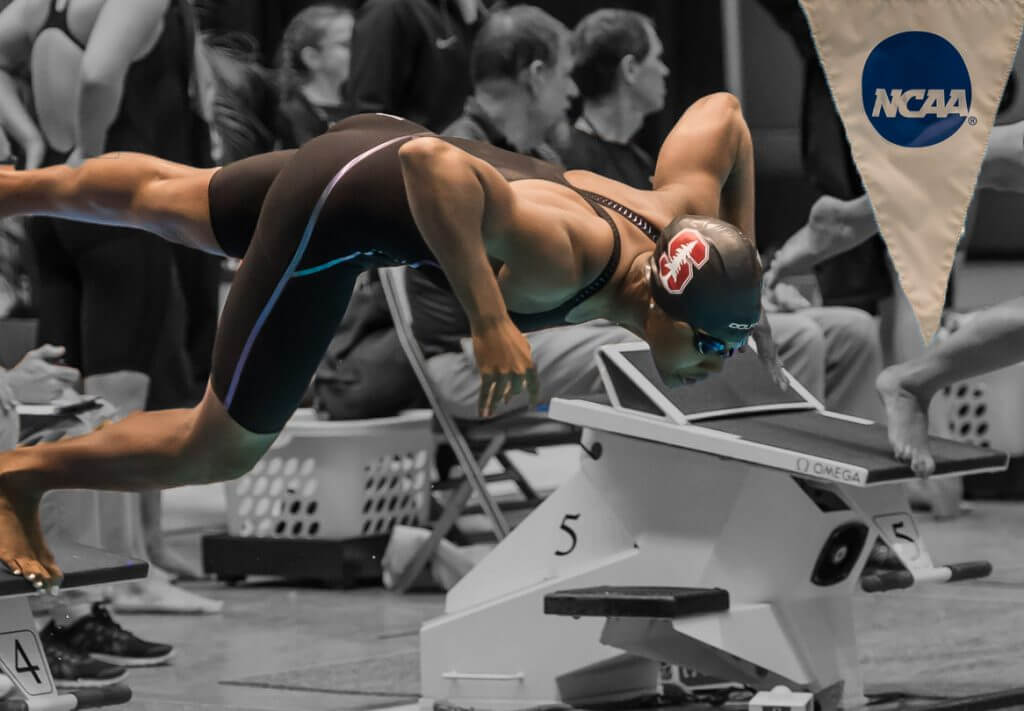
NCAA DI editorial coverage is proudly sponsored by Adidas. Visit adidasswimming.com for more information on our sponsor. For all the latest coverage, check out our event coverage page.
 CLICK FOR FULL RESULTS
CLICK FOR FULL RESULTS
By David Rieder.
The first session at the women’s NCAA championships was brief, but plenty happened between three heats of the 800 free relays: Stanford demolished its own American and NCAA record, while Louisville’s Mallory Comerford split a 1:40.21, faster than anyone not named Missy Franklin had ever swum.
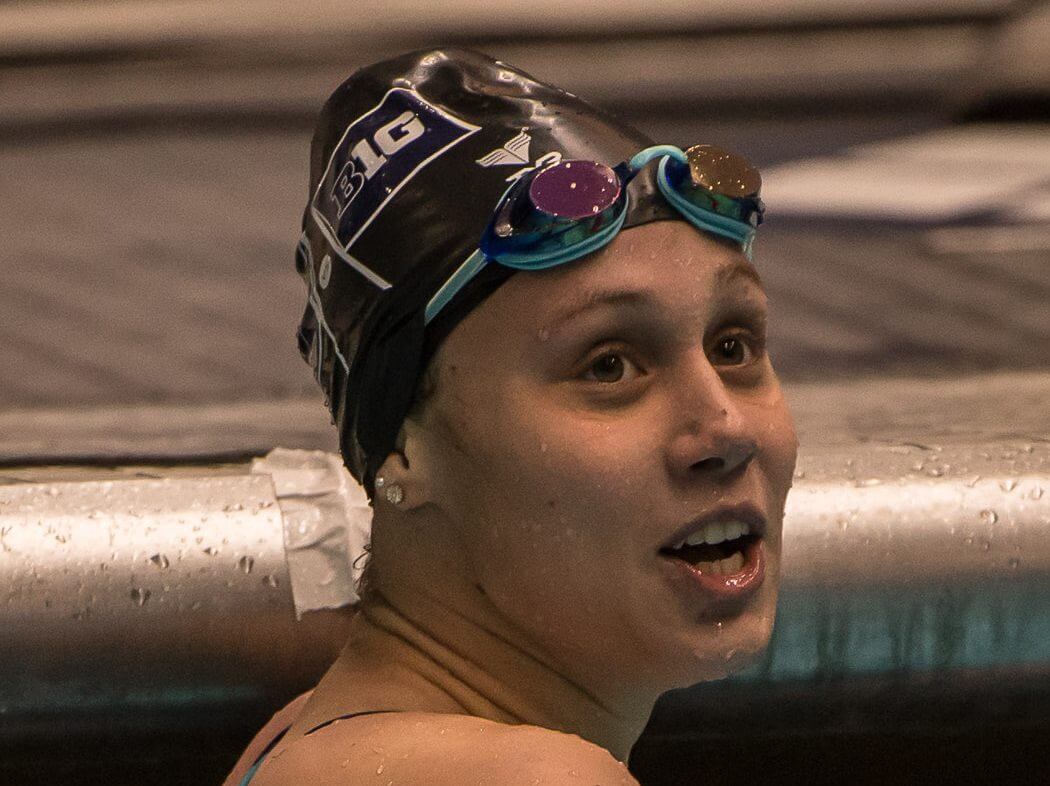
Mallory Comerford, Photo Courtesy: Peter H. Bick
The NCAA moved the single relay to Wednesday night last season so that no one would have to swim the 200 free three times on the middle day of the meet, and as an added bonus to the decision, the times have been quicker all around—at last year’s men’s meet, for instance, three teams broke the NCAA record in the event.
But with only one race in a session, teams go to bed feeling good or not-so-good based solely on how their four teammates performed. While a team’s performance for the 800 free relay may not reflect how its preparation for the sprint-heavy college program, momentum can be hard to stop.
So what can we take away from that session heading into the meet’s first full day? Well, glad you asked.
1. Even More Intrigue for the 200 Free?
In the second of three heats of the relay, Comerford stole the show. Her split was a hair quicker than Katie Ledecky split to anchor Stanford’s relay a few minutes later (1:40.46) and much faster than Simone Manuel’s 1:41.41 lead-off leg.
Just one month ago, Comerford was opening eyes when she split 1:41.12 on Louisville’s relay at the ACC championships. She just swam almost a second faster. Come the individual 200, the Louisville sophomore could break into the sub-1:41-range that only four others have ever reached: Franklin, Manuel, Ledecky and 2012 Olympic gold medalist Allison Schmitt.
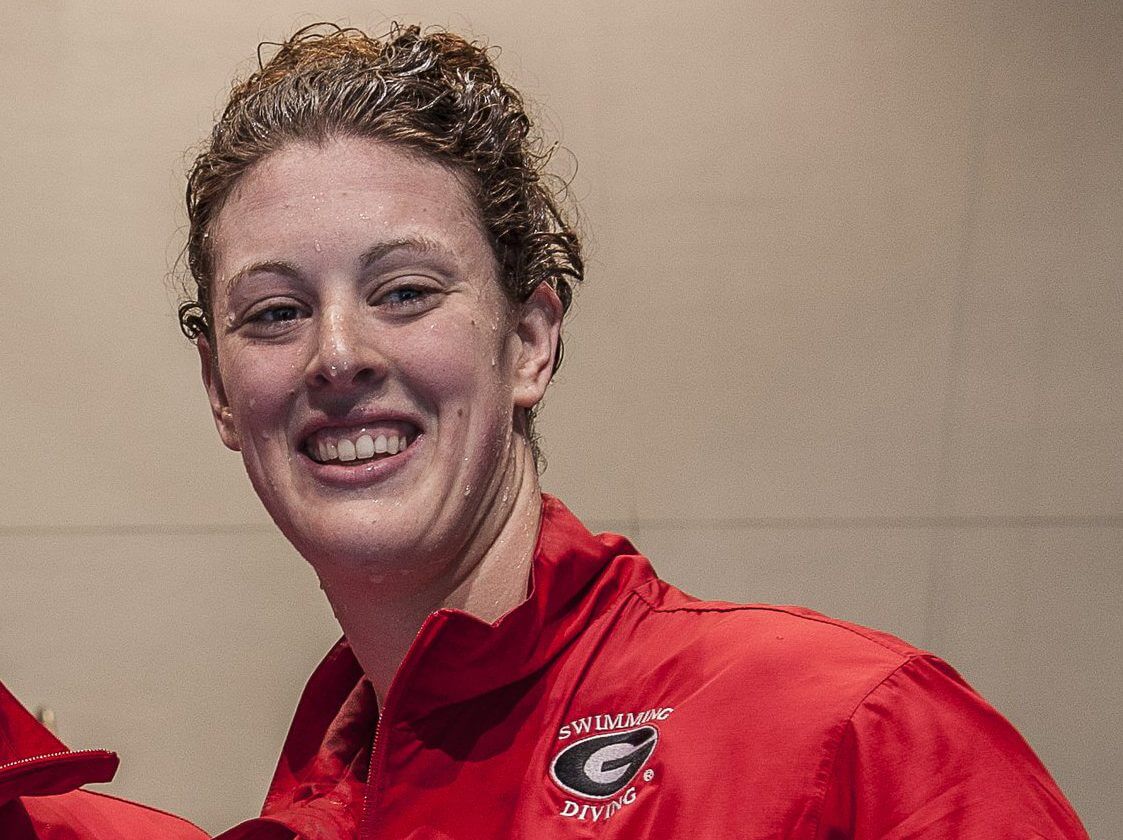
Allison Schmitt, Photo Courtesy: Peter H. Bick
And could Ledecky and Manuel, considered the heavy favorites to win that event, be vulnerable? Neither was especially impressive by their own high standards on the relay, although to be fair, Ledecky dove into the water for the anchor leg more than three seconds ahead of the competition and was never challenged.
And even sub-1:42 splits from both Siobhan Haughey and Lia Neal and a lifetime best 1:42.46 leadoff leg from Leah Smith, it’s hard to imagine the Ledecky-Manuel-Comerford trio, in some order, not comprising the top three in the 200.
2. Stanford’s Lineup Decision: Manuel Swims the 800
Manuel arrived in Indianapolis the No. 1-ranked swimmer in the country in the 200 free at 1:40.37, and after one night she remains that. But it was still a little bit surprising to see the redshirt sophomore behind the blocks preparing to lead off Stanford’s 800 free relay.
Why? Because the Cardinal did not need her. Had Katie Drabot (who split 1:43.43 on the relay that had set the previous record at Pac-12s) swum instead of Manuel, Stanford probably still wins easily. Drabot is no Ledecky, but she’s also not five seconds slower.
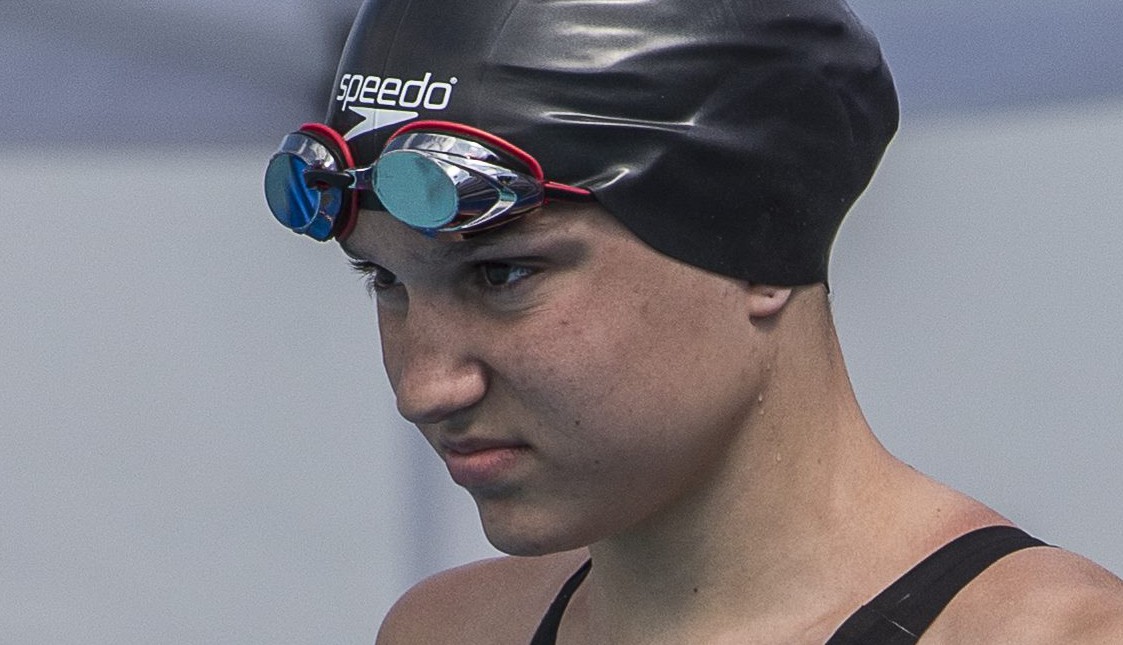
Katie Drabot, Photo Courtesy: Peter H. Bick
But Stanford head coach Greg Meehan explained afterwards that he and his staff decided immediately after Pac-12s that Manuel would swim the 800 free relay—a decision which paid off with a three-second destruction of the American record.
But with Manuel limited to four relays, that decision means she can only swim three more, and Meehan would not reveal which one she will take a pass on. The best bet would be Manuel sitting out one of the medley relays since Neal looms as a worthy replacement.
Will that decision pay off for Stanford? And more importantly, will the score end up being close enough that it even matters?
3. Who’s Hot and Who’s Not At The NCAA Swimming Championships?
The Michigan Wolverines and Texas Longhorns both slept well overnight after some impressive relay performances. Haughey boosted Michigan to a third-place finish, and Texas, led by Tasija Karosas’ 1:42.86 split, took fourth, both knocking chunks off their entry times.
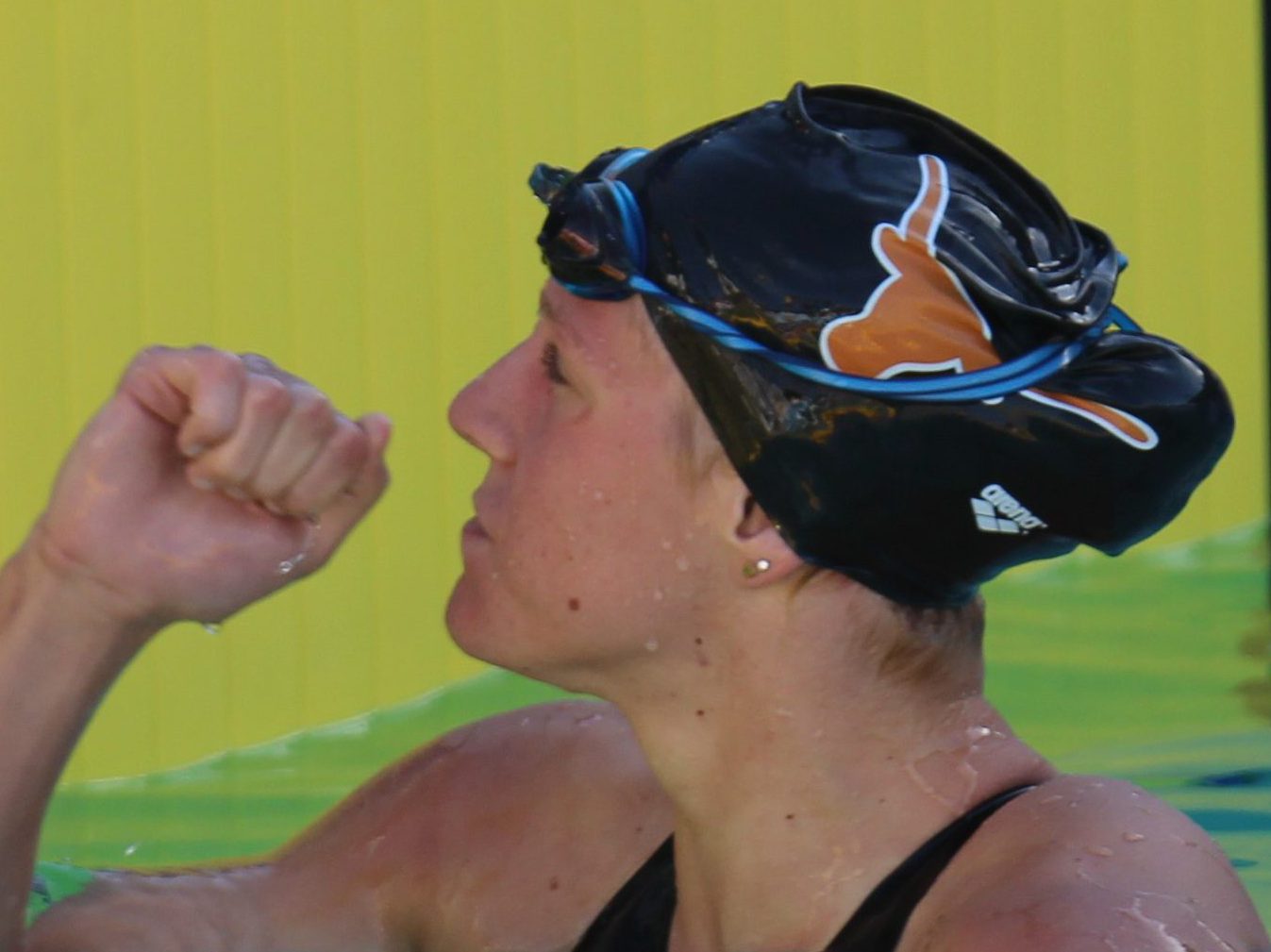
Tasija Karosas, Photo Courtesy: David Farr
As for the USC Trojans, Wednesday night was not so kind. Seeded third coming into the meet, the foursome of Louise Hansson, Tatum Wade, Stanzi Moseley and Kirsten Vose ended up 11th in 6:59.47, more than five seconds off the squad’s entry time. The Trojans did sub out top sprinter Anika Apostalon, but both Wade and Vose split more than two seconds slower than they had three weeks earlier in Federal Way, Wash.
And then there’s NC State, who arrived in Indy seeded ninth but ended up falling all the way to 19th. The 800 free relay was by no means the key to the Wolfpack’s hopes of a top-five finish, but it hurts to add five seconds and struggle to keep up in the second of three heats.
Of those two teams, USC has more time to get things straightened out. Based on the initial psych sheet projections, the Trojans’ biggest day comes on day four, with 100 points based on seeds, while NC State is depending on 80 points—the third-most of any team—in today’s races.
The good news for the Trojans, Wolfpack and every other team not thrilled with how things got started in the relay? There’s still 17 swimming races plus three diving events to go.
All commentaries are the opinion of the author and do not necessarily reflect the views of Swimming World Magazine nor its staff.




.jpg)
